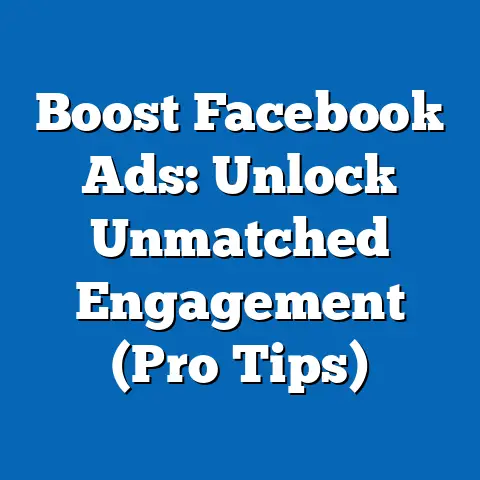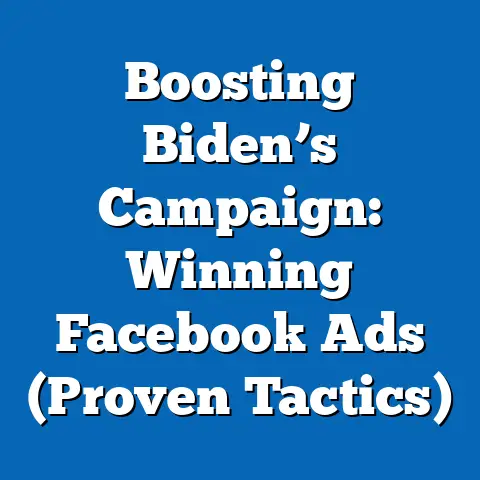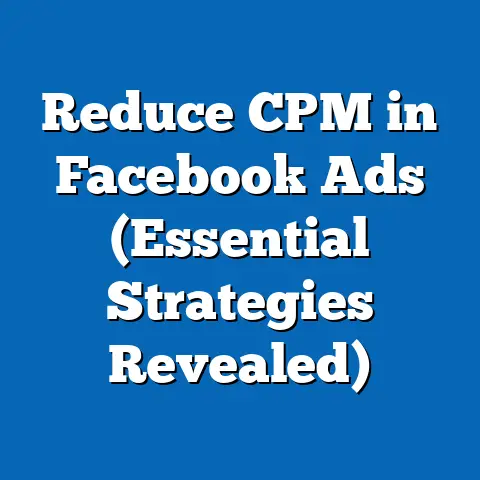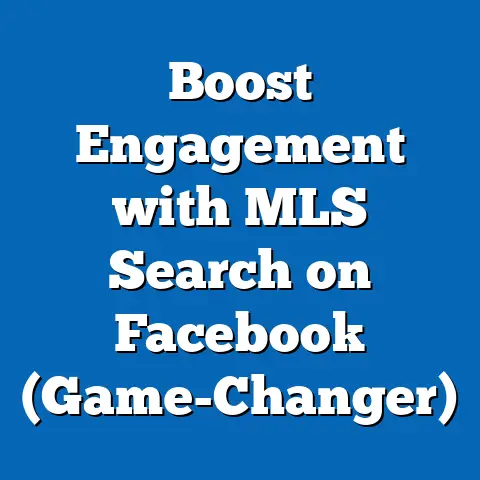Political Ads Controversy (Expert Insights on Facebook’s Stance)
Political advertising, in its essence, is as old as politics itself.
From ancient Roman graffiti promoting gladiatorial contests to the fiery pamphlets of the American Revolution, the art of persuasion has always been a cornerstone of democratic engagement.
Over the centuries, the mediums have evolved – from print to radio, then television, and now, dominating the digital landscape, social media.
Political ads have consistently shaped public opinion, influenced voter behavior, and even swayed the course of history.
Today, Facebook stands as a behemoth in this landscape.
With billions of users globally, it has become a critical battleground for political campaigns seeking to reach voters.
The platform’s sophisticated targeting capabilities, combined with its unparalleled reach, offer unparalleled opportunities for influencing public discourse.
However, this immense power comes with significant responsibility, and Facebook’s handling of political advertising has been fraught with controversy.
I’ve seen firsthand how quickly a seemingly innocuous political ad can spiral into a wildfire of misinformation, fueled by echo chambers and amplified by algorithms.
I recall a particularly contentious local election where a Facebook ad, riddled with blatant falsehoods about a candidate’s stance on education, went viral within hours.
The damage was done before fact-checkers could even react, leaving a lingering cloud of doubt and suspicion.
The controversies surrounding political ads on Facebook are numerous and complex.
Issues like the spread of misinformation, foreign interference in elections, and the amplification of extremist content have sparked intense debates about the platform’s role and responsibilities.
The ongoing tension between upholding free speech and preventing the dissemination of harmful content has placed Facebook under constant scrutiny, leading to policy changes, transparency initiatives, and a continuous struggle to balance competing interests.
This article aims to delve into these controversies, examining Facebook’s stance on political advertising, analyzing its policies and responses, and gathering expert insights on the implications for democracy, public trust, and the future of political communication.
We’ll explore the historical context, the rise of Facebook as a political powerhouse, and ultimately, try to understand where we go from here.
Historical Context of Political Advertising
Political advertising didn’t just spring into existence with the advent of the internet.
Its roots are deeply embedded in the history of human communication.
Early forms of political persuasion can be traced back to ancient civilizations, where leaders used public speeches, symbols, and artistic representations to sway public opinion.
The invention of the printing press in the 15th century marked a turning point.
Suddenly, mass communication became possible, allowing political ideas to spread rapidly and reach a wider audience.
Pamphlets and broadsides became powerful tools for disseminating propaganda and rallying support for various causes.
The American Revolution, for example, was fueled by the widespread distribution of pamphlets like Thomas Paine’s “Common Sense,” which galvanized public opinion against British rule.
The 20th century brought the advent of radio and television, revolutionizing political advertising once again.
These new mediums allowed candidates to connect with voters on a more personal level, using emotional appeals and visual imagery to convey their messages.
Think of Franklin D.
Roosevelt’s “fireside chats,” which used the intimacy of radio to build trust and confidence during the Great Depression.
Or the iconic “Daisy” ad from Lyndon B.
Johnson’s 1964 presidential campaign, which used fear to warn against the dangers of nuclear war.
As television became increasingly dominant, political campaigns became more sophisticated, relying on market research and data analytics to target specific demographics with tailored messages.
This trend continued with the rise of the internet in the late 20th and early 21st centuries.
The internet offered even greater opportunities for targeted advertising, allowing campaigns to reach voters with unprecedented precision.
The rise of data analytics has been particularly transformative.
Campaigns can now collect vast amounts of information about individual voters, including their demographics, interests, and online behavior.
This data is then used to create highly personalized ads that are designed to resonate with specific segments of the population.
This level of targeting raises ethical questions about privacy and the potential for manipulation, but it has also become an essential tool for modern political campaigns.
Social media platforms like Facebook have taken this trend to a whole new level.
They offer not only unprecedented reach and targeting capabilities but also the ability for voters to engage directly with candidates and campaigns.
This has created new opportunities for political communication, but it has also introduced new challenges, particularly in the areas of misinformation and foreign interference.
The historical trajectory of political advertising shows a constant evolution in response to technological advancements, and Facebook’s emergence as a political advertising platform is simply the latest chapter in this ongoing story.
Takeaway: Political advertising has a long and rich history, evolving from traditional methods to the sophisticated digital strategies we see today.
Understanding this historical context is crucial for understanding the current controversies surrounding political ads on platforms like Facebook.
The Rise of Facebook as a Political Advertising Platform
Facebook didn’t set out to become a political advertising platform, but its inherent characteristics made it a natural fit for campaigns seeking to reach voters.
The platform’s massive user base, coupled with its sophisticated targeting capabilities, offered an unparalleled opportunity to connect with specific demographics and influence public opinion.
One of the key factors in Facebook’s rise was its advertising tools.
The platform allows advertisers to target users based on a wide range of criteria, including age, gender, location, interests, education, and even their online behavior.
This level of granularity allows campaigns to create highly targeted ads that are tailored to the specific needs and interests of different voter segments.
For example, a campaign might target young, environmentally conscious voters with ads promoting the candidate’s stance on climate change.
Or they might target older, conservative voters with ads emphasizing the candidate’s commitment to traditional values.
The possibilities are virtually endless, and campaigns have become increasingly adept at using these tools to maximize their reach and engagement.
Facebook’s ad placement options also play a crucial role.
Campaigns can choose to display their ads in a variety of locations on the platform, including the news feed, right-hand column, and within Messenger.
Each placement offers different advantages, depending on the campaign’s goals.
For example, news feed ads tend to be more engaging and visually appealing, while right-hand column ads are often used for direct response campaigns.
Furthermore, Facebook provides campaigns with detailed analytics that track the performance of their ads.
These analytics allow campaigns to see how many people are seeing their ads, how many are clicking on them, and how many are taking the desired action, such as visiting a website or signing up for a newsletter.
This data is invaluable for optimizing campaigns and ensuring that they are reaching the right people with the right message.
I remember working on a local campaign where we used Facebook’s advertising tools to great effect.
By targeting specific demographics with tailored messages, we were able to significantly increase voter turnout and help our candidate win a narrow victory.
The ability to reach voters directly, without relying on traditional media outlets, was a game-changer.
However, Facebook’s effectiveness as a political advertising platform also raises concerns.
The very tools that make it so powerful can also be used to spread misinformation, manipulate voters, and interfere in elections.
The platform’s algorithms, which are designed to maximize engagement, can often amplify extremist content and create echo chambers, where users are only exposed to information that confirms their existing beliefs.
This can lead to polarization and a breakdown in civil discourse.
Despite these concerns, Facebook remains a dominant force in political advertising.
Campaigns continue to pour millions of dollars into the platform, recognizing its unparalleled reach and targeting capabilities.
As long as this remains the case, it is crucial to understand how Facebook works as a political advertising platform and to address the challenges it poses to democracy and public trust.
Takeaway: Facebook’s rise as a political advertising platform is due to its massive user base, sophisticated targeting capabilities, and detailed analytics.
However, these very tools can also be used to spread misinformation and manipulate voters.
The Controversies Surrounding Political Ads on Facebook
The controversies surrounding political ads on Facebook are multifaceted and deeply intertwined with broader debates about freedom of speech, misinformation, and the role of social media in democracy.
While Facebook provides a powerful platform for political campaigns to reach voters, it also presents unique challenges and risks.
One of the most significant controversies is the spread of misinformation.
Facebook’s algorithms are designed to maximize engagement, which means that content that is sensational, emotionally charged, or simply untrue often spreads more quickly than accurate information.
This can have serious consequences for political discourse, as voters may be making decisions based on false or misleading information.
The 2016 U.S.
presidential election brought this issue into sharp focus.
Revelations about Russian meddling through Facebook ads showed how foreign actors could use the platform to spread propaganda, sow discord, and interfere in the democratic process.
These ads often targeted specific demographics with divisive messages designed to exploit existing social and political tensions.
I witnessed firsthand the impact of these ads.
I remember seeing posts shared by friends and family that were clearly fabricated or distorted, yet they were being presented as factual news.
The speed at which these posts spread was alarming, and it was clear that Facebook’s algorithms were playing a significant role in amplifying them.
Another controversy is the use of micro-targeting.
Facebook allows campaigns to target users with highly personalized ads based on their demographics, interests, and online behavior.
While this can be effective for reaching specific voter segments, it also raises concerns about privacy and the potential for manipulation.
Campaigns can use micro-targeting to exploit voters’ fears and prejudices, or to present them with information that is tailored to confirm their existing beliefs.
The Cambridge Analytica scandal further highlighted these concerns.
The data firm harvested personal information from millions of Facebook users without their consent and used it to create targeted political ads.
This raised serious questions about the ethics of data collection and the potential for abuse.
Furthermore, the spread of extremist content on Facebook has also been a major concern.
The platform has been criticized for allowing hate groups and extremist organizations to use its platform to spread their messages and recruit new members.
While Facebook has taken steps to remove some of this content, it has struggled to keep up with the ever-evolving tactics of these groups.
The ethical implications of allowing unverified information to circulate on Facebook are profound.
The platform has a responsibility to ensure that its users are not being exposed to harmful or misleading content.
However, it also faces the challenge of balancing this responsibility with the need to uphold freedom of speech.
Regulating political ads on Facebook is a complex and contentious issue.
Some argue that the platform should be treated like a traditional media outlet and held to the same standards of accuracy and fairness.
Others argue that Facebook is simply a platform for communication and should not be held responsible for the content that is shared on it.
Takeaway: The controversies surrounding political ads on Facebook include the spread of misinformation, foreign interference, micro-targeting, and the spread of extremist content.
These issues raise profound ethical questions about the platform’s role and responsibilities in a democratic society.
Facebook’s Policies and Responses
In response to the growing controversies surrounding political ads, Facebook has implemented a number of policy changes and initiatives.
These measures are designed to increase transparency, accountability, and to prevent the spread of harmful content.
However, their effectiveness remains a subject of debate.
One of the most significant initiatives is the Ad Library.
This tool allows anyone to see all of the political ads that are running on Facebook, including information about who is paying for the ads, who they are targeting, and how much they are spending.
The Ad Library is designed to increase transparency and allow researchers and journalists to track political advertising on the platform.
I’ve used the Ad Library extensively in my own research, and I’ve found it to be a valuable tool for understanding how political campaigns are using Facebook.
However, it also has its limitations.
For example, it can be difficult to track ads that are targeted to very small audiences, and the Ad Library doesn’t always provide complete information about the targeting criteria being used.
Facebook has also implemented stricter rules about political ad content.
The platform prohibits ads that contain false or misleading information, ads that promote violence or hate speech, and ads that interfere with the democratic process.
Facebook has also partnered with fact-checking organizations to identify and label false information on the platform.
However, these efforts have been criticized as being too little, too late.
Many argue that Facebook’s fact-checking process is too slow and that the platform is not doing enough to remove false information from its platform.
Others argue that Facebook’s rules about political ad content are too vague and that they are being applied inconsistently.
Furthermore, Facebook has faced criticism for its decision to allow political ads that contain demonstrably false information.
In 2019, the company announced that it would not fact-check political ads, arguing that it should not be the arbiter of truth.
This decision sparked outrage from critics who argued that it would allow campaigns to spread lies and misinformation without consequence.
Facebook’s CEO, Mark Zuckerberg, has defended the company’s stance, arguing that it is important to protect freedom of expression.
He has also argued that voters should be able to make their own decisions about what information to believe.
However, many experts disagree with this approach.
They argue that Facebook has a responsibility to protect its users from false information, particularly when it comes to political ads.
They argue that allowing false information to spread unchecked can undermine democracy and erode public trust.
The challenges Facebook faces in balancing freedom of expression with the need to curtail harmful misinformation are immense.
The platform is under constant pressure from both sides of the political spectrum, and any decision it makes is likely to be criticized by someone.
Takeaway: Facebook has implemented a number of policy changes and initiatives in response to the controversies surrounding political ads.
However, these measures have been criticized as being insufficient and the platform continues to face challenges in balancing freedom of expression with the need to curtail harmful misinformation.
Expert Insights and Perspectives
To gain a deeper understanding of the implications of Facebook’s approach to political ads, I’ve gathered insights from political analysts, digital marketing experts, and ethicists.
Their perspectives offer a nuanced view of the challenges and opportunities that Facebook faces in this complex landscape.
One common theme among the experts I spoke with is the need for greater transparency.
They argue that Facebook needs to be more open about how its algorithms work and how they are used to target political ads.
They also argue that Facebook needs to provide more information about the sources of political ads and the funding behind them.
“Transparency is absolutely essential,” says Dr. Sarah Jones, a political analyst at the University of California, Berkeley.
“Without it, voters are flying blind.
They don’t know who is trying to influence them or what their motivations are.”
Another key issue is the need for stronger enforcement of Facebook’s rules about political ad content.
Experts argue that Facebook needs to be more proactive in identifying and removing false or misleading information from its platform.
They also argue that Facebook needs to hold political advertisers accountable for violating its rules.
“Facebook needs to take a much tougher stance on false information,” says David Miller, a digital marketing expert at a leading advertising agency.
“They can’t just rely on fact-checkers to identify false information.
They need to use their own resources to proactively identify and remove it.”
Ethicists also raise concerns about the potential for micro-targeting to be used to manipulate voters.
They argue that Facebook needs to implement safeguards to prevent campaigns from exploiting voters’ fears and prejudices.
“Micro-targeting can be a powerful tool for persuasion, but it can also be used to manipulate voters,” says Dr. Emily Carter, an ethicist at Harvard University.
“Facebook needs to ensure that campaigns are not using micro-targeting to exploit voters’ vulnerabilities.”
However, experts also acknowledge the challenges that Facebook faces in regulating political ads.
They point out that it is difficult to define what constitutes false information and that any attempt to regulate political speech is likely to be challenged on First Amendment grounds.
“Regulating political ads is a very tricky business,” says Dr. Jones.
“You have to be careful not to infringe on freedom of speech.
But at the same time, you have to protect voters from false information.”
The experts I spoke with offered divergent views on the effectiveness of Facebook’s policies.
Some believe that Facebook is making a genuine effort to address the concerns raised by critics.
Others believe that Facebook’s efforts are merely performative and that the platform is not doing enough to protect voters from harmful content.
“I think Facebook is trying to do the right thing,” says David Miller.
“But they are facing a lot of challenges, and they need to do more.”
Dr. Carter is more skeptical.
“I think Facebook is primarily concerned with protecting its own interests,” she says.
“They are not really committed to protecting voters from harmful content.”
Takeaway: Experts offer a range of perspectives on Facebook’s approach to political ads.
Some believe that Facebook is making a genuine effort to address the concerns raised by critics, while others believe that the platform is not doing enough to protect voters from harmful content.
The Future of Political Advertising on Facebook
The future of political advertising on Facebook is uncertain.
Several factors could shape how political ads are created and disseminated on the platform in the years to come.
One key factor is regulatory change.
Governments around the world are considering new laws and regulations to address the challenges posed by political ads on social media.
These regulations could impose stricter rules about transparency, content, and targeting.
For example, the European Union is considering new regulations that would require social media platforms to label political ads and provide information about who is paying for them.
The U.S.
Congress is also considering legislation that would regulate political ads on social media.
These regulatory changes could have a significant impact on how political campaigns use Facebook.
They could make it more difficult to target voters with personalized ads, and they could increase the cost of running political ads on the platform.
Technological advancements could also shape the future of political advertising on Facebook.
For example, artificial intelligence (AI) could be used to detect and remove false information from political ads.
AI could also be used to create more personalized and engaging political ads.
However, AI could also be used to manipulate voters.
For example, AI could be used to create deepfakes, which are realistic-looking videos that are designed to deceive viewers.
Deepfakes could be used to spread false information about political candidates or to damage their reputations.
Evolving user behaviors could also impact the future of political advertising on Facebook.
As users become more aware of the potential for manipulation, they may become more skeptical of political ads.
They may also be more likely to seek out information from trusted sources, such as journalists and fact-checkers.
This could make it more difficult for political campaigns to influence voters through Facebook ads.
Campaigns may need to find new ways to reach voters, such as through grassroots organizing or by partnering with trusted influencers.
The upcoming elections around the world will also play a crucial role in shaping the future of political advertising on Facebook.
The way that Facebook handles political ads in these elections will be closely scrutinized by regulators, journalists, and the public.
If Facebook fails to prevent the spread of misinformation or to protect voters from manipulation, it could face increased pressure to change its policies.
It could also face legal challenges or regulatory action.
Finally, the rise of emerging competitors and alternative platforms could also impact Facebook’s dominance in political advertising.
Platforms like TikTok and Snapchat are becoming increasingly popular with younger voters, and they could become important battlegrounds for political campaigns in the future.
If Facebook fails to adapt to these changes, it could lose its position as the dominant platform for political advertising.
Takeaway: The future of political advertising on Facebook is uncertain.
Regulatory changes, technological advancements, evolving user behaviors, upcoming elections, and the rise of emerging competitors could all shape how political ads are created and disseminated on the platform.
Conclusion
Political advertising, as we’ve seen, is not a new phenomenon.
It’s an integral part of the democratic process, constantly evolving to leverage the latest communication technologies.
From the printing press to the radio, television, and now, social media, political campaigns have always sought to reach voters where they are.
Facebook, with its massive user base and sophisticated targeting capabilities, has become a central player in this landscape.
It offers campaigns unprecedented opportunities to connect with voters, but it also presents significant challenges.
The spread of misinformation, foreign interference, and the potential for manipulation have raised serious questions about the platform’s role and responsibilities.
Facebook has responded with policy changes and initiatives, but their effectiveness remains a subject of debate.
The platform faces the difficult task of balancing freedom of expression with the need to protect users from harmful content.
The future of political advertising on Facebook is uncertain, but it is clear that the platform will continue to play a crucial role in shaping political discourse.
As technology continues to evolve, Facebook must adapt and innovate to meet the challenges of the digital age.
Ultimately, the responsibility for ensuring a fair and informed political process rests with all of us.
Voters must be critical consumers of information, and political campaigns must adhere to ethical standards.
Platforms like Facebook must play their part by promoting transparency, enforcing their rules, and protecting users from harmful content.
The balance between innovation in political communication and the responsibility that comes with it is a delicate one, and it is essential that we strive to maintain it.





